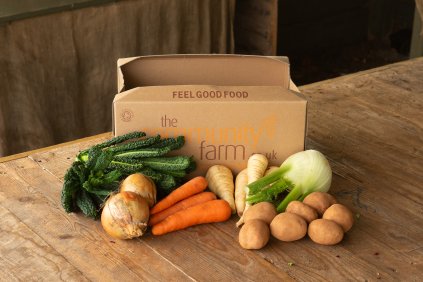Last weekend we welcomed Sarah Pugh to the Farm for a very inspiring and interactive weekend learning about Permaculture (Permanent Agriculture) and how we can apply the principles to our daily lives, gardens and communities.
There is so much more to it than 'growing vegetables.’ It is a complete way of life that is sustainable, friendly and one that requires your imagination to find creative solutions to daily as well as the bigger global challenges. It’s REALLY exciting! And from the introduction course it was easy to see how we are part of the solution.
Sarah Pugh, Permaculturist and course tutor said “It’s not about being overwhelmed by global issues, rather seeing what we can do about it, learning from nature and working 'with’ nature not against it.”
Permaculture, which has been around since the 70s, is a branch of ecological design, ecological engineering, and environmental design which develops sustainable architecture and self-maintained agricultural systems modelled from natural ecosystems. It’s clever.
The permaculture 'triangle’ and core principles are:
- Earth Care: Provision for all life systems to continue and multiply. This is the first principle, because without a healthy earth, we cannot flourish.
- People Care: Work together in harmony – cooperation rather than competition, by changing yourself how many others will you change?
- Fair Share - Sharing skills, resources and reducing waste. Healthy natural systems use outputs from each element to nourish others. We can do the same. By looking at our own needs, 'inputs v outputs’ we can make the most of what we have and at the same time minimise consumption.
We continued our learning outside – we looked at natural systems and useful plants, for example dock leaf, which loves compacted ground, and has the ability to activate it’s seeds even if they have been dormant for 70 years! And how brambles growing around tender shoots or young trees actually help to protect them from animals/people so givingthem a better chance of survival. So by looking at this natural system we discussed how to apply Nature’s wisdom to our own systems.
At the end of the two days – everyone felt they had a clear understanding of permaculture and it’s benefits as well as learning some practical skills to implement straight away. Clementine from Glasgow said “I feel more confident in my own ability now to use permaculture design and can take back with me what I have learnt and pass it on straight away.”
And Katie from Bristol added “You don’t even need a garden to be involved in permaculture!”
Permaculture in action at The Community Farm
The permaculture principles lie at the heart of what The Community Farm is about:
Earth Care - Sustainability is paramount in the way that the farm operates. We grow veg organically which means we are not pulling oil out of the ground to make fertilizers or pesticides but instead we are nurturing the land, building soil fertility, respecting and encouraging wildlife and bio-diversity. One example of this how we integrate pigs into the farm: They happily remove the incessant Couch Grass whilst naturally fertilising our soil.
People Care - We try and engage as many people with the land as we can through workshops, educational visits and volunteering. We believe that connecting with the land in this way is inherently good for you (as well as eating lovely organic veg!)
Fair Share - We believe that everyone should have access to good, healthy food and so we price it accordingly. We are a Community Interest Company and are not-for profit so we price our produce fairly, with any profits being re-invested in our community engagement programme, engaging people with the land and how we grow food here.
What you can do today:
- Start to observe your local environment in more depth and explore how you can use natural systems in your own garden or life in general.
- Join a local permaculture group for inspiration
- Sign up for a course if you’re interested in learning more about Permaculture.
- “Just do it, try it and experiment,” says Sarah Pugh!
A word on our Tutor, Sarah Pugh:
Sarah has been teaching permaculture courses for many years and her focus has always been on inspiring and involving people in designing and improving their local space, creating opportunities for communities to work collaboratively and to reconnect with nature, particularly in urban areas.
Sarah founded the Bristol Permaculture Group (which now has over 600 members!) and runs a one year Practical Sustainability Course with Shift Bristol. Visit her website for more information.
We look forward to welcoming Sarah back to the farm to run another course for us next year.
Article written by Morwhenna Wolcock, Social Media and Marketing Volunteer














